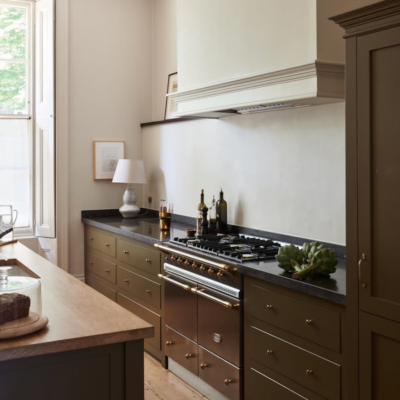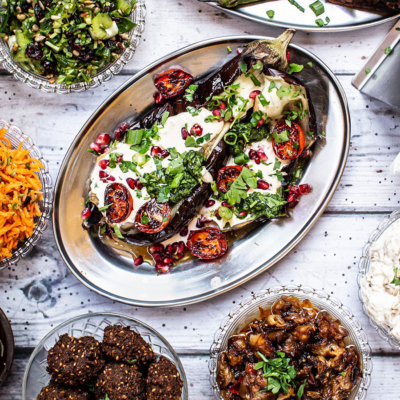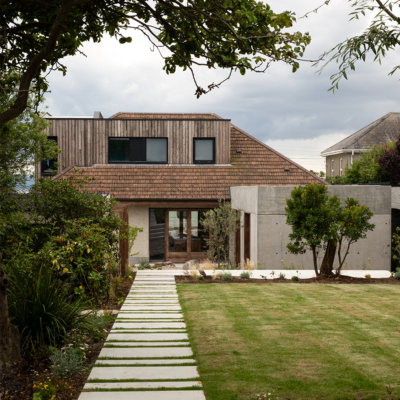Wicklow native Lucy Sweeney Byrne is one of the most scintillating voices to rise in years. Her essays, poetry and short stories have appeared in journals and magazines such as Banshee, The Dublin Review, The Stinging Fly, Litro and Grist. Her work was included in the twenty-year anthology, Stinging Fly Stories, and she was a semi-finalist for the Zone 3 Press Creative Nonfiction Book Award. She has twice received a literature bursary from the Arts Council of Ireland.
This year, Byrne will make a little piece of history with her first collection of short fiction, Paris Syndrome, which is also Banshee Press’s inaugural stand-alone book. Her debut is comprised of eleven unique stories about traveling solo as a young woman. The book has already generated an impressive early buzz, and readers are no doubt keen to snag a first edition. Her work has received much praise from her peers including Paul Murray, who said, “Harrowing and hilarious in equal measures – and often, somehow, at the same time – Paris Syndrome is an unforgettable portrait of millennial womanhood.”
Byrne’s bold and bountiful prose will capture the hearts of anyone who has ever been lost, restless or has experienced that unquantifiable feeling that they’re not, or should be, leading their best lives. Her stories take us to the perpetually freezing Ye Olde Americana boat in Brooklyn, the wilds of Donegal and a Paris graveside, as well as the more far-flung Chernobyl, Oaxaca and Havana, and of course, Dublin. This is a very special collection, to be enjoyed over and over again.
Lucy Sweeney Byrne lives in London with her partner.
Paris Syndrome (€15.00) is published by Banshee Press and available in all good bookshops from October 5 2019.
“I feel sick about all I haven’t read, and know I will feel that way forever.”
On home
I live at the end of the world in South Tottenham, London with my partner. Our apartment is in an industrial estate, flanked by parkland, and the River Lea. The area is very “up-and-coming.” Meaning, “still a bit shit, but interesting.” Beside us is a garage built into the arches of the railway line that rumbles our terrace as it passes. On the other side, a scaffolding company, without whose blasting radio I may never have had to endure hearing that “Old Town Road” remix. Alas. When we leave our back door open in the evenings, we can study the faces of the commuters passing above from our couch, in the brightly lit carriages. Sometimes, endless freight trains go by, carrying hundreds of shiny, cadaverous vans or cars, or containers with German or French graffiti on the side. Across the road to the front, there’s a squat in a crumbling commercial building. They’re Extinct Rebellion supporters, with lots of swirling black symbols tattooed on their thighs, and dreadlocks, and thumping raves until four or five am, which we like to complain about as wildly hypocritical (“oh, so sound pollution doesn’t count?”), because apparently we’re old fogeys now. Around the corner, there’s a brewery/basement club, a café/barbershop, a sourdough pizzeria, but also a Screwfix and a huge waste disposal site; to walk to the park, we have to hold our breaths as we pass these truly colossal mounds of rubbish, forever being hosed down to battle the dust clouds.
On roots
As a child, I always said I had four houses, because I had a room in my mother’s house in Bray, my father’s in Greystones, my nana’s on Blackberry Lane, and my other grandparents’ in the Willow Grove (all in Wicklow). It was only when I moved here, to London, that I realised I’d never lived in one place consistently before. All that jumping around was exciting, and I was smothered in love, and attention (and Tayto), but it also meant I learned early the tactic of running away: if there was a problem in one house, I’d skip to another. This may have informed my twenties, or maybe that’s one of Janet Malcolm’s “streamlined truisms of the age of mental health.” I probably just wanted to travel to find some bogus sense of meaning, like everyone else my age. It was a childhood of forgotten toothbrushes and ever-changing breakfast cereals.
When I think of it, what comes to mind is zooming around in my dad’s orange Beetle, strapped into the passenger seat with my feet up on the front shelf, tasting the diesel and listening to Bill Withers blast over the noisy engine; sitting on top of the hay bales, precariously piled behind my uncle’s tractor in Wales as he drove up the lane, dodging passing branches; driving my first car at the age of seven, into a ditch, of course; crunchy ham sandwiches on Silver Strand; endless conversations with ladybirds, and robins; sitting very still and quiet, to see the rabbits at the Rabbit Sand, and down the Blind Lane; making a snail sanctuary with the big girl down the road; crying over never getting a letter inviting me to Hogwarts; trying to cut a Werther’s Original sweet in half, so neither my step-sister nor I got a larger share; making apple pie and blackberry jam with my nana; the faeries at the bottom of the garden; the gnome under the tree who left footprints in the night; the perfect darkness of the cinema; the smell of my grandfather’s pipe; Wright’s Soap; the horror of mushrooms…
On early reading
My mom read all of the Little Women books by Louisa M Alcott to me, from the same old editions my grandmother had as a child. They were magical. I remember going to sleep with images of Jo’s boys (all of whom I was in love with) climbing trees and building things, playing across my eyelids. In that house, I also had audiobooks I listened to fanatically every night (I still can’t sleep without talk in my ears). The Railway Children, Enid Blyton’s The Naughtiest Girl In The School, The Four Seasons of Brambly Hedge. I can still see the mice’s winter ball in my mind, the food store they built in the autumn. Instead of reading, my dad used to play comedy tapes to me going to sleep; Hancock’s Half Hour, Eddie Izzard (back when he was funny and didn’t run marathons), Billy Connolly, The Moose Sketch by Woody Allen. He did read Squirrel Nutkin to me, over and over, because it was so absurdly hilarious – we’d be rolling around laughing. When I stayed in my nana’s house, she stayed in the room with me until I fell asleep, sitting on the far bed and telling me stories of her childhood in Clare, or playing eye-spy, or playing imagination games on the patterned carpet with these brass deer statues she had. I always managed to cajole my nana into letting me get back out of bed – she was, and is, exceptionally gentle when it comes to children. When I stayed in my grandparents’ house, I usually fell asleep to the murmur of my grandfather reading to my grandmother in the next room – they still do that, a chapter a night.
On creating
We chose this flat because it’s a two-bed and, for the first time, I’d have a room to write. This is, for me, an unimaginable luxury. I make virtually no money writing, so to have somewhere to live, let alone to write, feels incredible. The actual set-up is satisfyingly ascetic. My desk was left here by our landladies. It’s crummy and watermarked, and I’ve doodled all over it. On it, is an ugly old lamp from Argos, a big screen my partner was going to throw out and, right now, my laptop, a glass of water, a few books. Before the desk is a pinboard with seven notecards, on which I’ve written sentences I love, by writers I love. To my right, the door, on which I’ve stuck images I like, postcards and photos, mostly of empty spaces. To my left is a narrow set of bookshelves, with my notebooks, and some favourite books, for dipping. Out the window behind me is the mechanics’ yard, filled with hairy, belly-scratching men, and noise, and grime: not ideal, but that’s probably for the best. The ideal (woods, sea, fields, quiet) would perhaps be stultifying. And besides, I’d only want to go out walking.

Barter Books, one of Lucy Sweeney Byrne’s favourite bookshops. It has occupied the former Victorian Alnwick railway station in Northumberland since 1991 and draws upwards of 350,000 shoppers a year.
On bookshops
My current favourite is Barter Books in Alnwick, a second-hand bookshop in a repurposed old train station. It’s like something from a dream. In London, I’m most likely to browse Daunt Books in Hampstead at the end of a walk, or a swim in the ponds. I love the events in the London Review Bookshop. No matter the topic, I invariably come out humming with ideas. I also like the Broadway Bookshop and Pages of Hackney. Back in Dublin, I love Books Upstairs, of course, and my brother Oisín works in Chapters, so I have to give them a shout out – their second-hand selection is second to none. When I go west, I always pop into The Clifden Bookshop, and Charlie Byrne’s in Galway is fairly breathtaking.
I volunteered for a while in Housing Works bookstore in Manhattan. It’s a charity for people affected by HIV/AIDS. It’s genuinely wonderful.
Call me an asshole, but I’m not into Shakespeare and Company in Paris, and I’m not really a fan of Shakespeare and Sons in Berlin either. Probably because being jostled by tourists in the former, or amongst earnest hipsters in the latter, makes me hyper-aware of my own ridiculousness. Also, being what I would describe as very comfortably poor, I really do adore libraries. They’re still a marvel of the modern world for me. I’m like a sixties hippie when I think about them (“but seriously like, dude, what an incredible resource!”). I have spent an embarrassing number of hours loafing around the reading room of Greystones library, trawling through all those books I was intrigued by, but couldn’t quite afford to buy, and occasionally getting lost in staring at the sea.
On her “To Be Read” pile
My “To Be Read” pile is more of an ominous, craggy mountain that disappears into cloud. I feel sick about all I haven’t read, and know I will feel that way forever. This, though, is also a comfort – knowing that I will always have something else utterly essential, something breathtaking or stimulating, to read. I want to go back and read more of the Greeks, read more Kant, more Kierkegaard, more Nietzsche. I feel like my brain contains hazy cliffnotes on a lot of different things, but that I know nothing in depth. It’s appalling, how little I’ve read, and yet it’s all I seem to do.
I want to read Saint Augustine’s Confessions, and get my head around that wily bastard Spinoza, first-hand. I need to read Dante’s Inferno, and I want to read The Art of War by Sun Tzu (but that’s mostly to increase my knowledge of The Sopranos). I want to read the Shakespeare plays I’ve somehow skipped, and the rest of Varlam Shalamov. I want to read Sculpting in Time by Andrei Tarkovsky, and finish The Best American Essays 2018, which I’m enjoying (mostly) deploring. Territory of Light by Yuko Tsushima, which was a gift, is sitting here on my desk, waiting. I want to read names in old phone books, just to see how the sounds play off each other (I used to love reading them as a child, their addresses too, and picturing their lives). I’m also desperate to re-read things I profess to love but have, in fact, mostly forgotten; Underworld by Don DeLillo, American Pastoral by Philip Roth, Between the Acts by Virginia Woolf (I’ve just re-read a volume of her diaries, and The Waves). I’m unconvinced by the efficacy of reading any great text only once. Anything really worth reading is surely worth reading ten times. One hundred times. But how to find the time? And then there’s contemporary writing! I rarely read anything contemporary, simply because I’m busy never catching up with everything that’s gone before.
On escapes
My tried and tested escapes that are proper geographical locations are my aunt and uncle’s house in West Cork, and my grandparents’ holiday cottage in Connemara. I’d have cracked, I’m sure, had I not had these places to run to over the years. In general though, I escape by getting away from people, from busyness and the frenetic pace of regular living, to somewhere quiet and undemanding. I regularly need to go places where I can forget myself as a thing in the world, required to react and respond, and to hold my face in place; to go slack, and melt into my surroundings. In Ireland, this was usually the Wicklow Mountains, where I went with my dog Max, for walks, and to swim. Many of my most burstingly glorious memories from my late teens and twenties are of sitting on big flat rocks in the middle of rivers, or perched on the sides of mountains, with Max sniffing around or dozing beside me, munching a sandwich and reading a book, exhausted and sweaty, with no one needing conversation and nowhere I had to be. Here, it’s harder to really get away, but as temporary salves, Hampstead Heath is close by, and Epping Forest is grand, if a bit noisy from all the aeroplanes overhead. There are just too many people here to ever feel forget-yourself alone, unless I simply stay home and read, which I do, increasingly. My partner’s from Northumberland, so that’s been a miraculous discovery; walking to Dunstanburgh Castle across the dunes, Bamburgh, Holy Island, Hadrian’s Wall…Naturally, I don’t recommend any of these places to anyone, because the whole joy of them is the lack of other people – so please, if you’re reading this, stay away from Connemara, West Cork, the Wicklow Mountains and, now, all of Northumberland. Cheers.

On Paris Syndrome
I’ve been living and writing some of the stories in Paris Syndrome for almost a decade, and most of them were gestating in some way or another long before that. Everything I write is, in a way, both highly planned and organic, in how it comes to be. Before writing a piece, I’m under-thinking and dreaming and writing all around it, sometimes for years. I’ll find sentences for it bubbling up in my mind as I’m cooking dinner, or hanging out washing, or I’ll suddenly realise what the crux should be when out walking. Often, I won’t have any idea how much I’ve been obsessing, until I’m fit to burst, and finally have to start writing. Then, all going well, there’ll be a deluge. Then, it all has to be rewritten, of course, a thousand times, and then cut to shreds, so that maybe one, or at most two, of the original sentences will manage to survive untouched. Probably none will survive, from beginning to end, and whatever I was quietly obsessing over for all that time will end up as something else entirely. The stories in Paris Syndrome were like this. Making them into a collection happened very naturally, because really, I just write about the same thing over and over, cloaked in different scenarios; being lost, being dangerously free, dangerously alone, always seeking, and never finding. They’re a compendium of my twenties, and the act of writing them – the purpose they provided me in those years – is probably what got me through the experiences recounted within them. Having said that, I was forced to learn that living so as to have something to write, is not a strong enough reason to keep going, and, conversely, writing to justify your life won’t save you. There has to be something else, and there really wasn’t, in my twenties. I’m delighted that the stories are now finished, that those years are over, and that I have a book to show for them. One that I can present to my grandparents as proof I was, in fact, doing something vaguely constructive.
On Banshee Press
Those Banshee women are so damned impressive, aren’t they? They make my head spin, they get so much done. In publishing the magazine, they were right on the crest of a tide, providing a much-needed vehicle for voices often overlooked, on topics similarly overlooked. I have no doubt that if those like Ocean Vuong, or even, long before that, Marguerite Duras or Elizabeth Hardwick, were writing in Ireland now, they’d have been snapped up by the Banshees. Banshee was the first place I got to see my own writing in print, and now they’re publishing my book, so I really couldn’t have asked for a more ideal situation. Also, the neatness of it is incredibly satisfying – like a good, proper, Dickensian novel! Working with Claire Hennessy, Eimear Ryan and Laura Cassidy has been great. I thought I was a stickler for small details, but holy shit, their thoroughness and tenacity has been mind-boggling. I don’t think that with any other publisher I could have felt so assured that every single person involved was completely committed to making the book the best it could be. I felt from day one that I was in very safe hands. Whoever they decide to publish next will be a very lucky writer. They’re legends.
On what’s next
Oh God…Lunch? But, well, beyond that, I suppose next up will be the book launch on September 12 in Hodges Figgis (to which everyone is welcome, so please do come along!). Then I’ll be coming back and forth to Ireland for a few of the literary festivals, which should be good craic. In October I turn thirty, and next year, reader, I marry him (my partner, that is). Really though, I’m determined to just sit doodling at this desk as much as I can. I’ve entered a very new phase of my life, and I’m trying to understand and test out how that’s going to affect my writing; my tone, and perspective. It’ll be new, writing from a found place, rather than a lost place.
So, yes, I’m just writing all the time, testing the waters. I’m still obsessed, still forever playing with it, excited by it, the spark and grace and the endless – the almost painfully majestic – potential of words. I ought to say I’m working on a book, and I am, I suppose, but circuitously. I can’t talk about it, or even look at it too directly, or it’ll disappear. For now, I’m writing bits; scraps, notions, notes, and reading as much as I can. Right now it’s the utter joy of Sleepless Nights by Elizabeth Hardwick, a gift from my mom. To be honest, a bit of writing and reading, and lunchtime soon, is all I hope is on the horizon for me, ever (touch wood).
Main image credit: Savo Photography
LOVETHEGLOSS.IE?
Sign up to our MAILING LIST now for a roundup of the latest fashion, beauty, interiors and entertaining news from THE GLOSS MAGAZINE’s daily dispatches.









